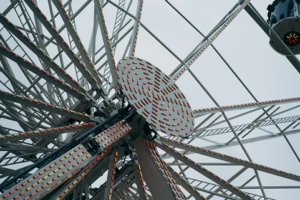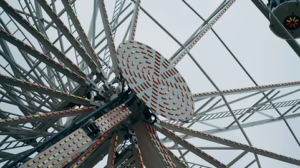The Power of Nostalgia: Why Reboots and Sequels are Here to Stay
Introduction
Nostalgia has always been a powerful force in human culture. It evokes memories of the past, transporting individuals back to times or experiences that shaped who they are. In recent years, this phenomenon has manifested significantly in the entertainment industry, particularly through the lens of reboots and sequels. From films to television series, the landscape is peppered with familiar titles resurrected from the vaults of history. This article explores the underlying reasons for this trend, the impact of nostalgia on audiences, and what it means for the future of storytelling in media.
The Nostalgic Pull
Roots of Nostalgia
Nostalgia has its roots in psychological studies showing that it can enhance mood, foster social connectedness, and create a sense of identity. According to research, nostalgia is often triggered by sensory experiences like music, smells, or visuals. In the media, those elements come together to create a potent feeling, captivating audiences who are eager to revisit beloved characters and storylines.
The Role of Memory
When individuals watch a reboot or a sequel, they are not just engaging with new material. They are also revisiting their memories, possibly reliving significant life milestones associated with the original content. The emotional resonance of these memories amplifies the impact of the media, making it more than just entertainment but a means of connection to one’s past.
The Business of Nostalgia
Proven Commodities
From a business perspective, reboots and sequels are a safe investment. They capitalize on established properties with proven fan bases, minimizing risks associated with introducing new concepts. For studios and networks, this is a double-edged sword. While it provides a lucrative avenue, it sometimes stifles creativity as they lean into formulas that work rather than pushing boundaries.
Success Stories
Several notable reboots and sequels have been exceedingly profitable, leading to a gradual acceptance of this trend. For example, the Star Wars franchise, once concluded, was revived with sequels and spin-offs that not only honored the original series but also attracted a new generation of fans. The success of shows like Stranger Things, which channels 1980s nostalgia, illustrates this trend brilliantly.
Audience Empathy and Connection
A Shared Experience
Nostalgia operates on the principle of shared experiences. When audiences engage with a reboot or sequel, they often do so with friends and family, creating an atmosphere of communal enjoyment. This shared experience fosters discussion, reflection, and bonding, making the viewing experience more fulfilling.
The Impact of Social Media
In the digital age, social media amplifies nostalgic reactions. Fans discuss, critique, and celebrate reboots or sequels collaboratively online. Platforms like Twitter, Instagram, and TikTok serve as spaces where memories associated with the original content can be revisited, creating a buzz that further fuels interest in nostalgia-driven media.
The Evolution of Storytelling
Blending Old and New
Reboots and sequels are not limited to simple retellings of the past; they often blend old narratives with contemporary themes. This evolution challenges storytellers to modernize characters and plots while retaining the essence of what made the original appealing. For instance, the reboot of Ghostbusters featured an all-female cast while honoring the spirit of the original films, creating a fresh perspective while respecting its roots.
The Art of Fan Service
While contemporary reboots and sequels often strive to innovate, it’s essential to recognize the role of fan service. Balancing new interpretations with nods to beloved moments can be crucial for winning over both returning fans and new viewers. Such strategies not only pay homage to the originals but help in mitigating potential backlash from die-hard fans.
Challenges of Nostalgia
The Risk of Over-Reliance
Despite the apparent benefits, an over-reliance on nostalgia can also lead to creative stagnation. As studios constantly bring back old properties, the risk of diluting original content’s value or failing to create meaningful narratives increases. Audiences can become fatigued with repetitive character arcs or plotlines that feel recycled.
Balancing Innovation and Nostalgia
The challenge lies in finding the balance between delivering what audiences want and pushing creative boundaries. Filmmakers and showrunners are tasked with the difficult duality of honoring the past while carving out new, relevant stories that resonate with contemporary life.
Conclusion
The trend of reboots and sequels is more than just a fleeting moment in entertainment history; it is a reflection of our intrinsic human need for connection, familiarity, and empathy. Nostalgia taps into collective memories and shared experiences, providing comfort and a sense of belonging.
As the industry continues to evolve, the challenge lies in navigating the fine line between honoring the past and fostering innovation. While nostalgia will likely remain a powerful narrative tool, the future of storytelling will demand fresh ideas that captivate audiences anew, navigating the complex tapestry of memory and modernity in a world that continues to crave the past.
References
- Boym, Svetlana. The Future of Nostalgia. Basic Books, 2001.
- Davis, Frederick. Yearning for Yesterday: A Sociology of Nostalgia. Free Press, 1979.
- Hutson, Thomas. “The Nostalgic Appeal of Reboots and Remakes”. Media Studies Journal, vol. 15, no. 1, 2018, pp. 45-62.
- Sutherland, Jan. “Cinematic Nostalgia: The Emotional Triggers Behind Reboots”. Journal of Film and Media Studies, vol. 20, no. 2, 2020, pp. 132-148.
- Turner, Graeme. Understanding Celebrity. SAGE Publications Ltd, 2004.
Feel free to reach out if you need specific sections expanded or further details!


























Add Comment